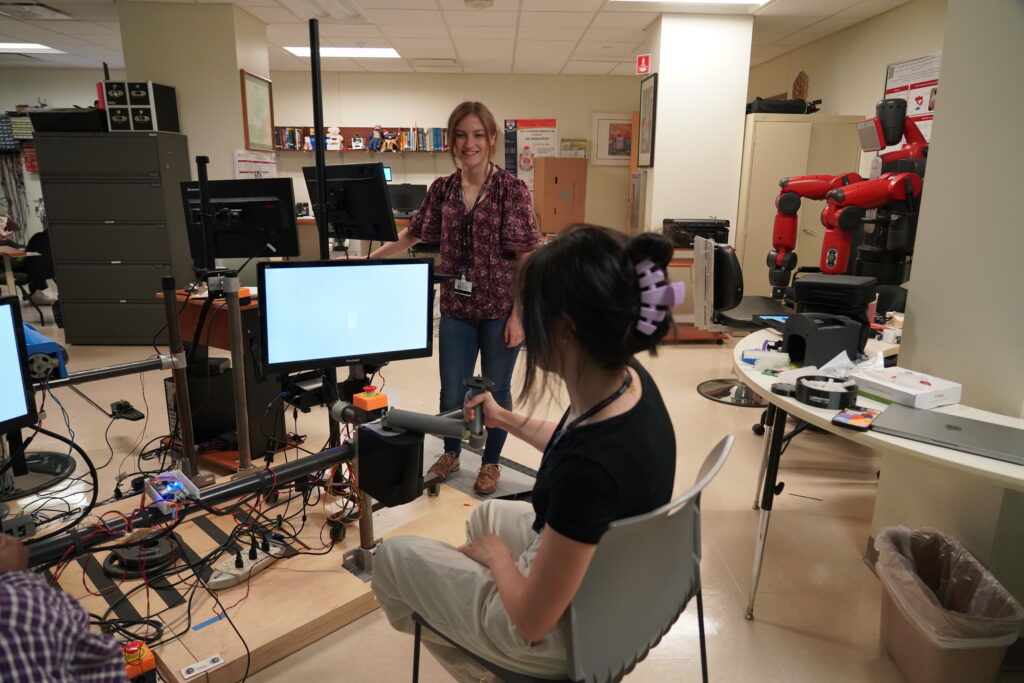
In a milestone for both personal achievement and advancements in rehabilitation robotics, Erica Waters, a fourth-year doctoral student in the Department of Mechanical Engineering and Applied Mechanics (MEAM), has been awarded the Ruth L. Kirschstein Predoctoral Individual National Research Service Award (F31) from the Eunice Kennedy Shriver National Institute of Child Health and Human Development (NICHD).
The F31 award is a highly competitive grant aimed at supporting promising predoctoral students with the potential to become productive, independent research scientists. Erica’s project, titled “Leveraging Robot-Based Haptic Dyads to Improve Community-Based Stroke Rehabilitation,” was officially awarded on July 23rd and commenced on September 1st.
A Journey Rooted in Compassion and Technology
Erica’s path to this research began with a personal connection. Growing up with a mother who worked as a special education teacher, Erica developed an early interest in assistive technology and its potential to improve lives. This interest, combined with her undergraduate studies in human kinematics at the University of Tennessee, laid the foundation for her current work in rehabilitation robotics.
The Research: Bridging Technology and Human Interaction
Working under the guidance of Michelle Johnson, Associate Professor of Physical Medicine and Rehabilitation, Erica’s research focuses on enhancing stroke rehabilitation through innovative robotic and haptic technologies. Her project aims to improve community-based care, a critical need as the global population ages and the demand for accessible rehabilitation increases.
Key aspects of Erica’s research include:
- Robot-Based Haptic Dyads: Studying interactions between two individuals using rehabilitation robots capable of applying forces. This includes exploring how healthy older adults exchange forces, especially when unaware of their partner’s presence.
- Translating Findings to Stroke Patients: Investigating how the insights gained from studying healthy older adults can be applied to improve rehabilitation for stroke survivors.
- Community-Based Rehabilitation: Focusing on making advanced rehabilitation techniques more accessible outside traditional clinical settings.
- Controller Improvements: Enhancing the controllers used in rehabilitation robots to optimize their effectiveness for patients with varying degrees of motor impairment.

Impact and Future Prospects
The F31 grant, which provides support for up to three years, will allow Erica to delve deep into her research, potentially revolutionizing stroke rehabilitation techniques. By combining robotics, haptic technology, and a keen understanding of human motor learning, Erica’s work has the potential to significantly improve the quality of life for stroke survivors and other individuals with motor impairments.
